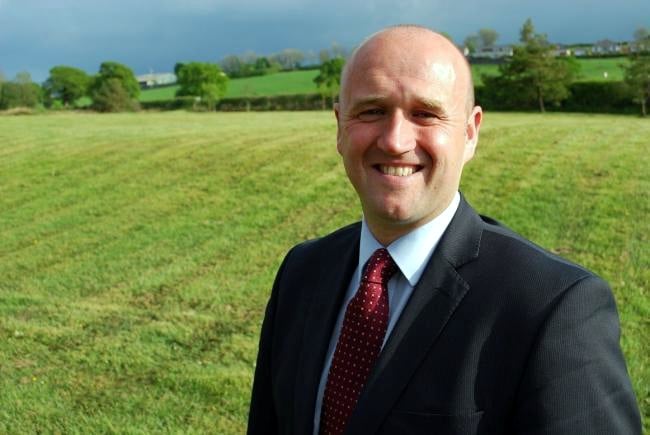We love British police. What I mean is that most rational individuals imagining unpoliced societies picture terrifying anarchy. For this reason, we should be truly grateful to those women and men who everyday hurry towards disaster, individuals sworn to protect us from each other and from ourselves.
Those of us who have lived elsewhere may also revel in a police force that does not require routine bribery, that individually and as a collective can be openly criticised, and occasionally held to account. A lifetime of travel leaves no doubt in my mind that British police are the best in the world, and I would prefer to be policed by no other force I have ever encountered.
However, the fact that British police are to be loved, celebrated, and supported does not make British policing perfect. Far from it. For however essential police officers are, right now, the reputation of UK policing is engulfed in flames, an inferno that is making many crucial policing tasks more difficult. For example, recent polling reveals 71 per cent of adults think the culture of policing has to change in order to better respond to violence against women and girls, and a worrying 10 per cent of women indicated that they would now be less likely to report a sexual assault to the police.
A factor in this reputational demise, the Chief Constable of the Metropolitan Police concedes, is that police officers are rarely policed with the same rigour as the general population. Bad apples are retained, a festering culture of unchecked racism, misogyny, and homophobia resulting in an unceasing flow of scandals and disciplinary hearings across England and Wales. Unfortunately, not only is every policing region firefighting the same reputational conflagration, but many, including Dyfed-Powys, appear to be dousing paraffin on the blaze.
Just as British police forces should be doubly focused on rebuilding trust and restoring relationships with law-abiding residents, directives from an increasingly extreme Home Office look to expand policies that destroy trust and pander only to the most swivel-eyed conservative constituents. Confrontational strategies that are particularly out of step with a young, progressive, and relatively low-crime mid Wales.
While Plaid Cymru wish to distance Welsh policing from such Westminster interference by fully devolving the Criminal Justice System, Plaid Cymru’s only Police and Crime Commissioner has chosen a path in unity with Suella Braverman’s authoritarian mindset. At a time when few around here have been clamouring for more aggressive policing, latest figures show a bewildering 240 per cent increase in the use of stop and search.
Dafydd Llywelyn, the elected Plaid Cymru Police and Crime Commissioner (PCC) for Dyfed Powys states that he is “confident and has been reassured by the Chief Constable (CC) that despite the increase, Dyfed-Powys Police does exercise its powers responsibly, ethically, and proportionally”. That this increase “demonstrates an unwavering dedication to maintaining public safety through proactive approaches”.
Proactive policing is a welcome strategy that seeks to deter crime before it occurs. Positive but difficult examples of proactive policing would be more patrols in crime hotspots, improved community relations, or educating and encouraging residents in domestic crime prevention. Unfortunately, thousands of unjustified stops and searches offer a considerably less strenuous route towards improving Proactive Policing statistics, but the strategy has little effect on crime, is self-defeating in any ambition to restore plunging trust, and is clearly counterproductive in dealing with local scourges of Class A drugs and domestic violence. This is because domestic violence and drug dealing are crimes seldom solved by stopping random people in the street. These serious and persistent offences are most often solved with intelligence flowing from the public, from trusted police-community relationships.
Mr Llywelyn claims that his Quality Assurance Panel and Independent Advisory Group safeguard the public by reviewing stop and search. But a quick flip through these panels’ findings shows that whatever the procedural misstep identified, any and all explanations offered by the police will be meekly greeted with, ‘oh that’s okay then’. Meaningless evaluation so long as these panels all but always conclude that, irrespective of lapses in procedure, every police intervention is acceptable. And so, providing effective cover for misconduct and a fast track to public distrust.
No mention from the PCC that such a staggering increase in stop and search is only possible with further movement away from approved police guidelines. No mention from the PCC that thousands more law-abiding residents are coming under unjustifiable police scrutiny. Last year, almost seven thousand individuals across Dyfed-Powys, overwhelmingly young and white, needlessly waylaid, too often left fuming and feeling humiliated. Many thousands of upstanding Welshmen feeling increasingly distanced from an apparently hostile police force. Hostile to interloping drug dealers, yes please. Hostile for our law-abiding young folk, no thank you.
And mid-Wales policing has become more antagonistic. A decade ago, every few days, patrolling officers would pop in for coffee and chats. Building relationships. Upon reopening, though still welcome, I discovered a shift in culture. Not hostile enough, I suppose. Too woke, maybe. Too few Bobbies on the beat? More scowling required? A backwards step in community policing, whatever the reason.
On the upside, a few months back, the PCC and Dyfed-Powys Police Chief Constable, Dr Richard Lewis, were willing to sit down to discuss stop and search, racial disparity, and community relations. A meeting that concluded with an obvious question; what are they going to do to improve a situation all agreed was unacceptable? The Chief Constable’s suggestion: “Let me and Dafydd have the time to have a really important conversation. We need a bit of time to digest.”
Good to their word, a few weeks later Dafydd and Richard returned. I wondered what the results of their deliberations would be. What change is coming? But they arrived with no solutions. They determined that everything the police do is correct. They asked if I had any suggestions of my own. I do. The very same suggestions I venture at every opportunity. That stop and search should never be used as a fishing expedition. That when stop and search powers are used (and they should be used), police officers rebuild public trust by working within approved guidelines regarding genuine suspicion.
Sadly, it appears that warm words from the PCC regarding meaningful engagement and being held to account amount to nothing. Lip service is evidently fine. But please do not expect actual action. The PCC has sought out reasons to conveniently discontinue these conversations. Conveniently, because the key lever in rebuilding trust, to reduce aggressive and counter-productive policing, is the one lever that the PCC and CC are enthusiastically pushing in the wrong direction.
Former police officer Mr Llywelyn requires reminding by his sponsors within Plaid Cymru that the Police and Crime Commissioner’s role is not to act as defender of police misconduct, it is to be the voice of the people. Reminded that he was elected on a Plaid Cymru ticket to hold his Chief Constable and the Dyfed-Powys Police Force to account. Time that Dafydd and Richard better characterise Plaid Cymru’s progressive policing manifesto and resist being champions of the Conservative right.




